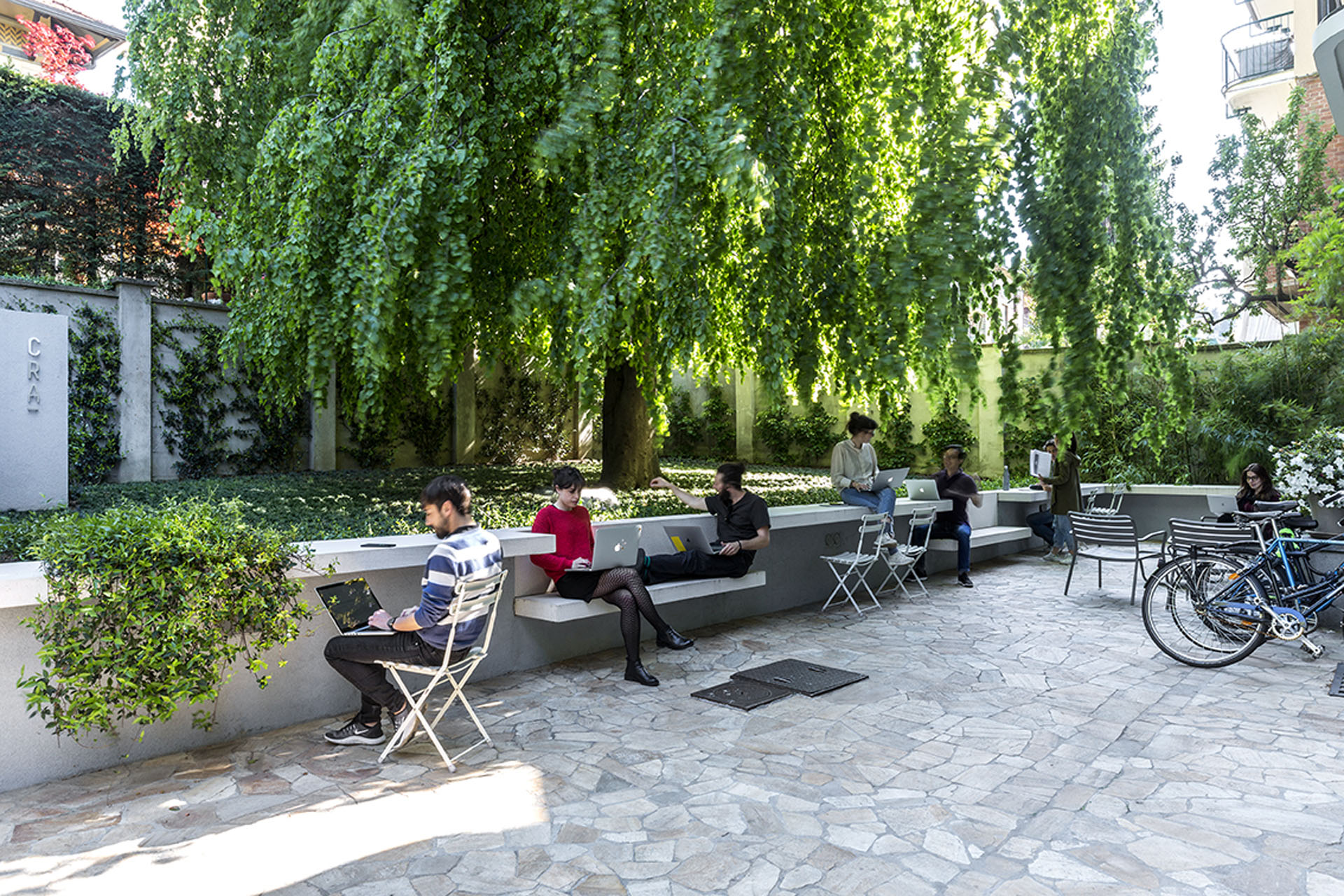By Marika Tomasi
Architecture PhD student
How can a city respond to climate? This challenge is what prompted me to start my research. I am Marika Tomasi, Early Stage Researcher for the Solutions for Outdoor Climate Adaptation (SOLOCLIM) project. The SOLOCLIM project is a European Industrial Doctorate (EID) project in the programme Innovative Training Networks (ITN) and part of Marie Sklodowska-Curie Actions, funded by the European Commission within the Horizon 2020 programme. My colleagues and I explore solutions to promote climate adaptation in cities, focusing on vegetation-based and water-based solutions, and climate-responsive systems. The aim of my research, “Integration of climate-responsive systems in a large-scale urban development”, is to contribute to the implementation of climate-responsive solutions in master planning, in order to improve outdoor thermal comfort and tackle climate change.
The research is being developed in both academia and industry. I am a current PhD student at the Kent School of Architecture and Planning; my main supervisor is Professor Marialena Nikolopoulou, and my secondary supervisor is Dr Giridharan Renganathan. The main topics I address as part of my PhD research are outdoor thermal comfort, urban climate modelling and simulations, and urban planning and design. The final result will be a protocol that, based on the projects developed along the journey, will provide recommendations for practitioners to include climate-responsive systems in master planning.
Alongside my PhD, this innovative programme gives me the chance to elaborate my research in an industrial environment, specifically, the design and innovation office Carlo Ratti Associati (CRA), based in Turin (IT). Here, I have two supervisors, Juan Carlos Romero and Monika Löve. The programme is structured as follows: six months spent in the University, followed by two years at the industry partner, and in the end, another six month period in Canterbury to finalise the research. Since I started in Canterbury in June 2020 and moved to Turin in December, I have spent almost the same time in both locations.
In CRA, I am collaborating with different departments, to build a comprehensive overview of the workflow and the methodology applied to each new challenge. The opportunity to experience the design process within the studio will be fundamental for my research. In fact, I will have the chance to discuss the usability of my solutions and to receive feedback from practitioners. I believe that collecting various perspectives on the current design practice will give an important contribution to my research; at the same time, this experience will stimulate my problem-solving ability and improve my researcher’s skills. I wish to be able to absorb the vibrant and stimulating atmosphere of Carlo Ratti Associati as much as possible, to enhance my research and grow both professionally and personally. I hope to test my proposals on real case studies, in order to contribute to their development and optimise the final solution.
During my first few months in Turin, my aim was to understand the organisation of the studio, looking for what the industrial environment could give to my research and vice-versa. Now, I feel that a new chapter can finally start: the investigation about climate-responsive systems becomes more practice-oriented, and I am looking forward to seeing the first results. The final goal is to develop solutions to allow urban planners to implement climate-responsive systems in their proposals. In December 2022, I am going back to the University of Kent, to finalise my research on climate-responsive systems.

